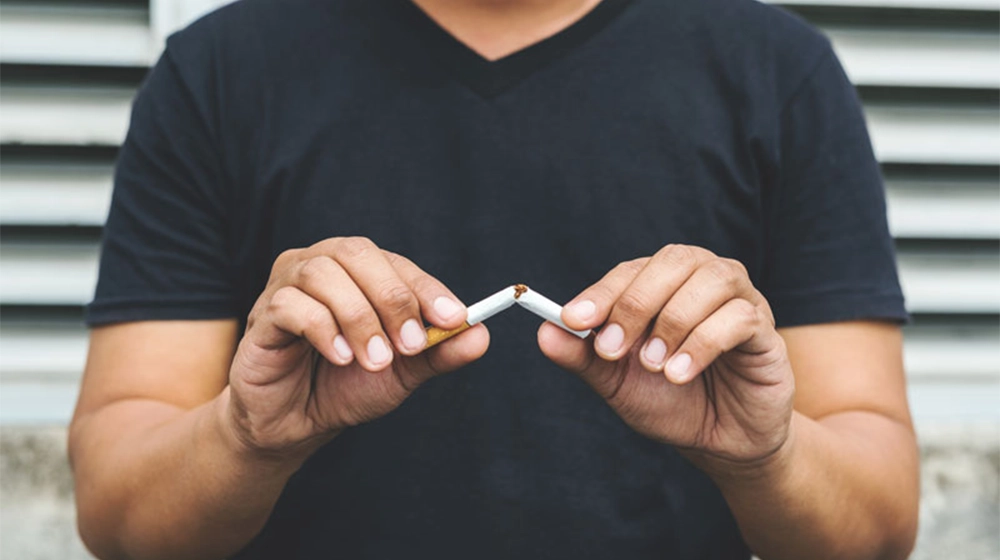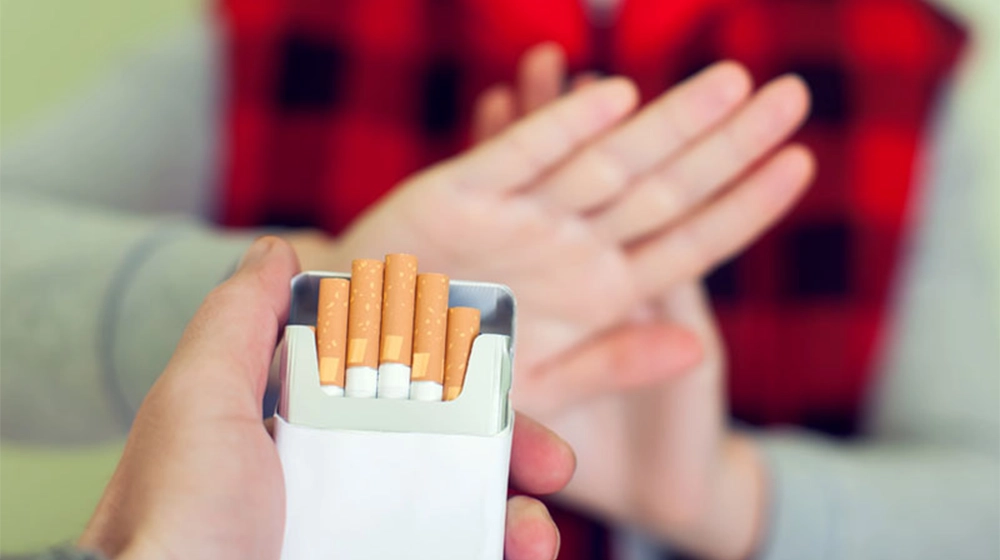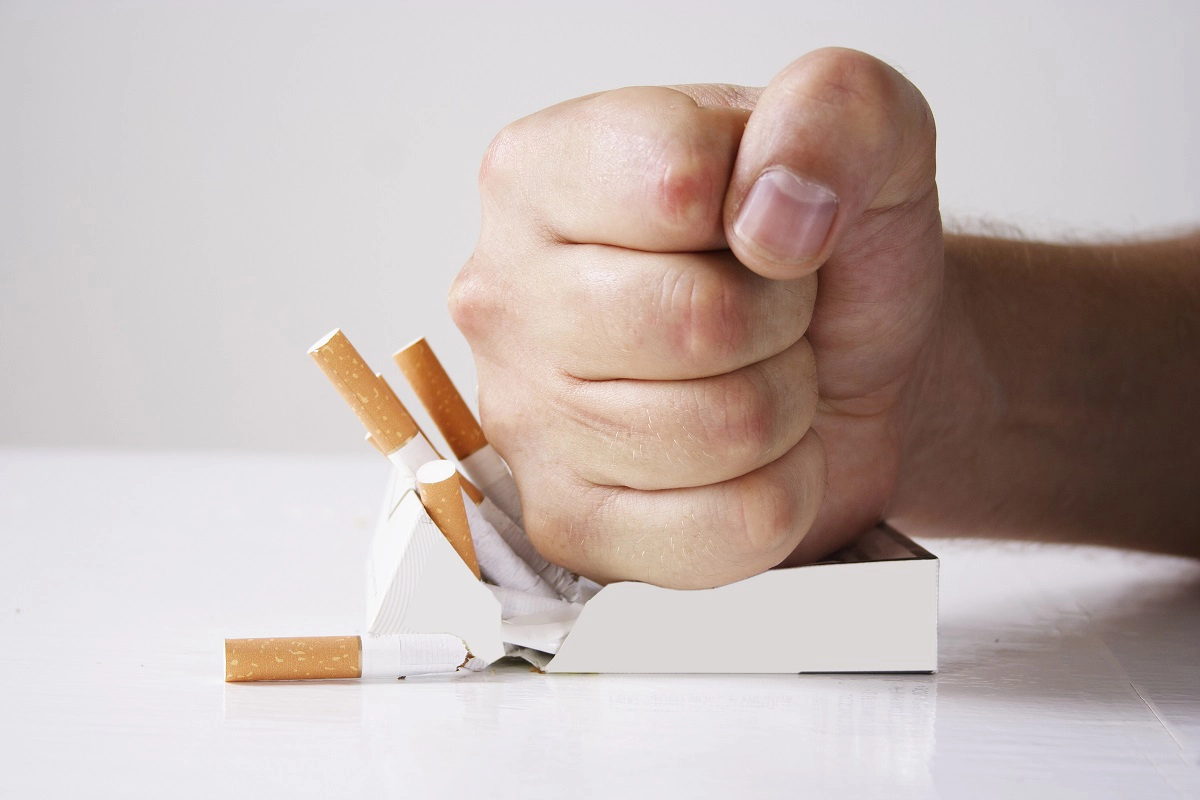The best way to quit smoking is not limited to just one strategy. Most of the time, you have to use a combination of techniques to make your attempt at quitting cigarette smoking successful. Since there are many ways to do it, don’t hesitate to try out different methods. See which ones suit you best.
When you decide to kick the habit, then know that you’ve already won half of the battle. Nevertheless, you still have to work on the other half. So, how do you do this? Read along, and we’ll share with you several techniques. You can choose which one for you is the best way to quit smoking.
Where to Start?
To start your battle with cigarette smoking, you should first know where and how to start. It will significantly help you in taking the leap. By now, you’re most likely already aware of the various health risks of cigarette smoking. Most smokers do, but this habit still kills so many people every year. To think, it is something that is preventable.
When you quit smoking, know that you won’t be able to do it overnight. It’s going to be a tough journey. But stopping this habit will give your health a chance to improve. The duration and the quality of your life will also change for the better. Even those around you will benefit from your quitting because they will no longer be exposed to second-hand smoke.
To successfully kick your smoking habit, you must change your behaviour. Apart from that, you must also learn how to cope with the symptoms of withdrawal. It is crucial that you find healthier ways of coping whenever you experience changes in your mood during withdrawal. Once you have your game plan, and you know the best way to quit smoking, start your recovery journey.
Set the Date on When You Will Quit
Upon deciding that you will quit smoking cigarettes, then you should be ready to pick a date on when you will stop. Choose a date that is not very far in the future. It’s best this way so that you won’t have the chance to change your mind. But you will also still have sufficient time to make the necessary preparations.
There are many ways to quit smoking. Choosing the best way to quit smoking is up to you. For example, you can quit abruptly, or you can quit gradually. So this means that you can continue to smoke up until the date you have set to quit and then stop smoking. Or you may lessen the number of cigarettes that you smoke slowly up until the set quit date when you’ll stop the habit altogether.
There have been studies that made comparisons with these two techniques. Researchers found that the quit rates for the two methods are almost the same. That is why you can choose which of the two techniques on how to quit smoking you will use. It all depends on what’s the best way to quit smoking for you.
Preparing for the Quit Date
To make quitting manageable, here are some tips that you can use. First, tell your loved ones and your friends that you are going to quit. Share with them the specific date that you intend to quit smoking. Second, decide on whether you want to stop cigarette smoking cold turkey or if you want to use substitutes. An example of a substitute for cigarettes is NRT or nicotine replacement therapy.
Third, attending and participating in a group for smokers who want to quit may be helpful for you. If you think that you can benefit from it, then sign up as early as now. Fourth, try various oral substitutes. You can try toothpicks, straws, coffee stirrers, carrot sticks, and the like. See which substitute is the best way to quit smoking for you.
Fifth, set up your support system. You can ask friends or loved ones who were successful in quitting cigarette smoking to help you. For friends or family members who are still smoking, ask them not to smoke when you’re around. Lastly, if you have had attempts at quitting before, but it wasn’t successful, try to ponder on what made you go back to your bad habit.
What to Do on Your First Day without Cigarettes

There are many activities in your day that can trigger smoking. For example, do you smoke after you get up from sleeping? Maybe you smoke right after you’re done with your meal or when you’re drinking coffee. Do you use smoking as a way to have a break and relax?
It is vital that you break the association that you have between these triggers and the habit of smoking. When you can do this, then fighting the urge to light up another cigarette be much doable. Here are some of the things that you can do on the quit day when you won’t have cigarettes to smoke any more.
- Try your best to not give in to buying another pack of cigarettes. There’s no such thing as the last pack or the last cigarette. You have to be firm that you will stop and you won’t buy another one again.
- Keep yourself busy with household chores or a new hobby. You will find that there are plenty of things that you enjoy doing other than smoking cigarettes.
- Start using your nicotine replacement therapy or NRT.
- Attend a group session for people who want to quit smoking. If there aren’t any near you, go online and join an online community. You can also search for steps that you can take on your own. You can then create your own plan on the best way to quit smoking.
- Make it a habit to consume more water. If you like fruit or vegetable juice, then make sure to stock up on the ingredients that you need. Preparing such beverages will also help keep you busy and take your mind off of smoking.
- Do your best to limit or cut your alcohol intake. It will make it easier for you to quit smoking.
- During this time, you are very vulnerable. That is why it is best if you avoid friends or loved ones who are smokers for now. Explain to them that you are in the process of quitting the habit.
- Lastly, don’t put yourself in situations where you will be tempted to smoke. Your body will have a very strong urge for nicotine. Also, your mind is just starting to get used to you, not smoking. So, help yourself by avoiding such situations.
Related article: How to Quit Smoking Weed?
What to Do When You’re Tempted to Smoke?
During your first day without cigarettes, you will definitely want to smoke. It is a fact that you have to accept. But it doesn’t mean that you will give in to the urge. By accepting that you will be tempted, you can better prepare for it. Know that each craving for a cigarette will pass.
The first thing you can do when you feel the urge to smoke is to delay smoking. For example, tell yourself that you will wait five minutes. If you still want to smoke, then tell yourself that you will wait for another five minutes. Do this until the craving to smoke passes. You will soon learn that the craving will pass, and you were able to survive without smoking within those minutes.
While you’re waiting for the urge to dissipate, practice deep breathing. Do this by inhaling slowly through the nose. Count from one to three and then release the air through the mouth. Count another three seconds. When you’re doing this breathing exercise, visualize that you are filling your lungs with oxygen-rich fresh air.
The next thing that you can do when you’re craving to smoke is to drink water. Drink it slowly so that it can help you beat your cravings. And lastly, distract yourself until the urge to smoke goes away. If you think about it, there are so many things that you can do other than smoking. It all depends on you what activities you prefer. You can get up and go for a walk, play video games, read a book, or do chores.
What is Nicotine Replacement Therapy?
Quitting smoking cold turkey or without using nicotine replacement therapy and meds is thought to be the best way to quit smoking. But the truth is that of all the smokers attempting to quit using this technique, only 6% were able to stop the habit successfully. You may think that you only need strong willpower to do this, but nicotine dependence is a real problem. You are going to need all the help that you can get.
With nicotine replacement therapy, you can expect to feel fewer cravings as well as symptoms of nicotine withdrawal. Remember that these two can greatly affect your attempt to quit the habit. NRTs are available to people who want to stop smoking by allowing them to wean off cigarettes. What happens is that you still get some dose of nicotine, but you are no longer have exposure to chemicals from the tobacco.
There are several types of NRTs, two of which need prescriptions. The nasal spray and inhaler need prescriptions before you can purchase them. The other three NRTs, which are the lozenges, chewing gums, and skin patches, are available for anyone trying to quit smoking cigarettes.
Once you decide that you want to use NRTs, then you need to talk to your healthcare provider. It is vital to discuss the appropriate dosage for you first before you attempt to stop cigarette smoking. Take note that the NRTs will be able to help you deal with smoking tobacco. However, you must keep in mind that your ultimate goal is to quit your use of nicotine altogether.
When using the NRTs, observe how your body reacts. Do you experience any of the following?
- Skin swelling
- Mouth problems
- Irregular or fast heartbeat
- Nausea
- Vomiting
- Weakness
- Dizziness
If you notice any of these effects, immediately contact your doctor. You may be having a negative reaction towards the NRT. It is crucial that you seek medical attention as soon as you start experiencing anything out of the ordinary.
How About Non-Nicotine Meds?
At present, there are two non-nicotine meds that can help people who want to quit smoking. The medications are varenicline (Chantix) and bupropion (Zyban). Before purchasing these meds, consult with your physician first. You can ask about what to expect from these medications as well as possible side effects. If you feel comfortable with it and the doctor thinks it’s the best way to quit smoking for you, you may then ask for a prescription.
The way that bupropion works is that it helps you with the cravings and the nicotine withdrawal symptoms. The medication is in tablet form, and you should take it for twelve weeks. After that, consult with your doctor again so that he or she can assess if it’s working successfully. The doctor may recommend that you use it for the next three to six months. It is so that you can lessen the risk of going back to smoking.
As for varenicline, this medication interferes with the brain’s nicotine receptors. What happens then is that it reduces the pleasurable feeling that you get from smoking. Apart from that, you will also feel a decrease in the withdrawal symptoms.
The medication is also necessary for twelve weeks. The same process goes just like the previous non-nicotine medicine. After the twelve weeks, you can consult with your doctor and have an assessment. You may then keep on using the medication for the next twelve weeks so that you can lessen relapse risks.
When taking non-nicotine meds, you should prepare yourself for the side effects. You may experience particular behavioural changes. It is possible that you will feel depressed, aggressive, or hostile. You may also have suicidal thoughts. That is why it would better if you have a companion with you while you’re going through this process.
Seeking Support to Quit Smoking

The physical dependence on nicotine is not your only challenge. Emotional dependence is also going to make quitting smoking difficult. So, for you to quit successfully, you will have to deal with both the physical as well as emotional dependence on nicotine.
Some of the steps that you can take would be to look for self-help books or articles, attend counselling sessions, and seek support services. Any of these can be the best way to quit smoking.
You may try each one or a combination of these so that you can choose which suits you best. What is certain is that your physical symptoms will eventually get better. When this happens, so will the emotional symptoms.
You may use a combination of the NRTs, non-nicotine meds, and behavioural support. Studies state that combining these techniques increases your chances of success in the long term. As for behavioural support, there are many ways that you can get this.
For example, you can do your own research on the best way to quit smoking. There are plenty of self-help articles and e-books online. Also, you can try getting advice from counselling and individual or group therapy. Counselling may be in person, online, or by phone.
Benefits When You Quit Smoking Cigarettes
There are so many negative effects on your body when you smoke cigarettes. You may develop serious illnesses such as heart disease and cancer. It is also possible that these diseases can lead to an early death.
You already know this information by now, but you still find it hard to quit. It is most likely because of the withdrawal symptoms that you experience whenever you try to do so. Some of the withdrawal symptoms that you will feel when you quit smoking are headaches and irritability. You will also have intense cravings to smoke again.
Quitting cigarette smoking is very challenging. But the benefits that you will get for both your mental and physical well-being will be worth it. Let’s take a look at some of the benefits of stopping cigarette smoking.
Breaking the Cycle
After you quit smoking, you will experience immediate effects. Within a month after you stop the habit, the brain’s nicotine receptors will go back to normal. It is crucial for this to process to take place because it breaks the cycle of your nicotine addiction. So, expect the first month to be tough. But after that, things will be much bearable, and you can feel that quitting smoking is possible.
Better Blood Circulation
Another immediate effect when you quit smoking is that your blood circulation improves. Within two weeks to twelve weeks, your body will experience this benefit of stopping your smoking habit. It means that you can start going back to doing physical activities. It will be much easier to be physically active once you quit smoking. Also, you will have a lower risk of suffering from a heart attack.
Improvement in Smell and Taste
When you are a smoker, it is highly likely that the habit damages the nerve endings of your mouth and throat. It dulls your sense of smell and taste. However, when you quit smoking, the nerve endings will start to grow back in as soon as 48 hours. In the next days without smoking a cigarette, you will notice improvements in your sense of smell and taste.
More Energy to be Active
Your breathing will get better when you quit smoking. It means that you can handle more physical activities. With more oxygen going in your lungs and other body parts, you will have more energy to be active. You can go back to doing the things you love, such as sports or working out. You don’t even have to be overly active at first. What you will notice is that it is not as difficult to climb the stairs or go for a brisk walk as when you were a smoker.
Better Immune System

Once you quit smoking, your blood circulation improves. Consequently, the oxygen levels of your body increases. You will suffer from fewer inflammations, as well. All these will give the immune system a much-needed boost. You will notice that you don’t get colds as quickly as before. Smoking makes you at risk of getting sick easily. Getting better from illnesses is also longer when you’re a smoker. So, when you quit the habit, you will have better overall health.
Cleaner Mouth and Teeth
As you may already know, one of the really bad effects of smoking is bad breath and yellow teeth. You will also be at risk of getting oral infections. But when you stop quitting, you will notice that your mouth feels different. It is much cleaner, and it won’t smell of cigarettes. It will greatly improve your confidence with yourself when it comes to mingling and talking to other people.
Better Sex Life
Do you know that smoking can affect your performance in bed? Yes. For males, you will be more at risk of having erectile dysfunction. For females, there is a big chance for female sexual dysfunction as well. It means that there will be a reduction in genital lubrication as well as the frequency of orgasm. Surely, these are things you don’t want to experience. So, better quit smoking so you can enjoy greater intimacy with your partner.
Lowers Your Risk of Developing Cancer
For this benefit, it may take a number of years for your body to recover fully from the damage. However, as soon as you quit, it will lower your risk of developing certain cancers. It includes pancreatic, bladder, kidney, esophageal, and lung cancers. Such diseases are serious and should not be taken lightly. It is never too late to stop smoking. Your body will still heal and recover. But you have to commit to stopping the bad habit so that you can experience these benefits.
What Happens When You Quit Smoking?
When you decide to quit smoking, you will experience side effects. Most are mild side effects, but for some, it may be extreme. It is because the body is dealing with the withdrawal from nicotine. Many smokers say that what they feel when they are going through withdrawal is similar to having flu.
Remember that smoking cigarettes affect every organ in the body. That is why when you quit the habit, your body will find it necessary to adjust to the absence of nicotine. It is crucial that you are aware of the side effects so that you can prepare for them.
Keep in mind though that these side effects won’t last long. It may feel terrible, but remember to commit to quitting smoking. Here are some of the side effects that you may experience during withdrawal from nicotine.
Nausea and Headaches
The physical symptoms of withdrawal are some of the side effects you will experience. Almost every smoker who tries to quit will go through nausea and headaches. It is normal to experience these symptoms because your body is adjusting from not having nicotine. Remember that these symptoms will not last long. Once your body is used to the absence of nicotine, you will feel better.
Tingling Sensation in the Hands and Feet
When you stop smoking, your blood circulation will improve. That is why you may feel tingling sensations in your feet and hands. Again, this is normal, and you shouldn’t be a cause for alarm. It may feel strange, but it is not that uncomfortable. You will just notice this sensation. It will also pass as you go through days being cigarette-free.
Sore Throat and Coughing
You may think it’s strange that you’re coughing and having a sore throat when you already stopped smoking. But the explanation behind this is that your lungs are trying to clear away the mucus buildup. While it is not comfortable, consider it a good sign that your body is getting rid of the poison inside your lungs.
Increase in Appetite and Possible Weight Gain
Since quitting smoking improves blood circulation, it increases your energy. When you are more energetic, you get hungry quickly. Also, since you can taste and smell better, you are going to enjoy eating more now when you have stopped smoking. Other smokers also substitute smoking with eating. With this, you may notice an increase in your weight. Don’t worry about it because you can always ease into a healthier lifestyle once you get over the withdrawal phase.
Intense Nicotine Cravings
While you were a smoker, your body has developed a dependence on nicotine. Expect that you will experience an intense craving for it once you stop the habit. Usually, you will feel this craving during the second to the fourth week of being cigarette-free. When you quit smoking, know that it will feel worse at first, but eventually, it will get better. Hold on to the thought that after a month, everything will be much easier.
Anger, Frustration, and Irritability
Remember that what you are doing is a massive change for your body. Your body needs to adjust to the absence of nicotine. Your mind will also make adjustments to not having a cigarette to smoke during breaks, after eating, or after work. So, prepare yourself for times when you feel irritable, frustrated, and angry. Find ways that can help you deal with these feelings. As much as possible, keep yourself busy so that you won’t think about smoking.
Feeling Constipated
Nicotine intake also affects your colon and small bowel. That is why, when you stop smoking, you may feel constipated. It is simply your body trying to adjust without the substance. During this time, eat fruits and vegetables that are rich in fibre. It will make you feel much better.
Dry Mouth
One of the most common causes of dry mouth is smoking. It may become worse when you quit. The anxiety and stress during this time may aggravate it. But don’t worry. It is only temporary, and you will soon feel better. In the meantime, drink lots of water to address the discomfort of dry mouth as well as to keep you hydrated.
Insomnia, Anxiety, and Depression
Did you know that as a smoker, you are more at risk of being anxious and depressed? Studies as to why this is so are still ongoing. Since you experience these feelings, you are more likely to smoke so that you may feel better. Once you quit the habit, it may intensify your anxiety and depression. Another common symptom when you’re going through withdrawal is insomnia.
Take note that depression shouldn’t be taken lightly. If you feel that you are experiencing depression, go to your doctor so that he or she can make an assessment. The doctor may recommend you to a therapist who can prescribe medications or suggest that you go through talk therapy.
Inability to Focus
It is only natural that you feel you can’t focus on your tasks because of withdrawal symptoms. When going through the process, it is best if you can take a few days off from work. It will help you relax and simply concentrate on getting better.
However, if you feel that you can manage the symptoms just fine, then you may continue with your tasks as usual. Remember to not be too hard on yourself. Quitting smoking is a big step, so take things slow. Recovery and healing will take time.
Timeline When You Quit Smoking
- Twenty Minutes: Within twenty minutes after your last cigarette, your heart rate will drop. When you smoke cigarettes, it increases your heart rate as well as your blood pressure. So, when you stop smoking, it will go back to the normal level within twenty minutes of quitting.
- Twelve Hours: At the twelfth hour of being cigarette-free, the level of carbon monoxide in your body drops. The carbon monoxide in your body is not good for you, and it is dangerous. It is what comes out of your car exhaust. It shouldn’t be in your body as it causes you to run out of breath easily. After twelve hours, the level of carbon monoxide drops and your oxygen level increases.
- Forty-Eight Hours: After about two days of stopping the habit of smoking, your sense of taste and smell will improve. Smoking damages nerve endings for these senses. So, once you stop smoking, the nerve endings will grow again. You will start to feel that your sense of taste and smell is better.
- Three Months: In three months after you quit smoking, your risk of suffering from a heart attack decreases. By this time, your blood circulation will have improvements. Your heart rate and your blood pressure will also be back to normal. With a better level of oxygen in your body as well as improvement in lung function, you will be less likely to suffer from a heart attack.
- Nine Months: After nine months of being cigarette-free, you will feel that you don’t run out of breath easily anymore. Also, you won’t be coughing a lot at this time. Sinus congestion won’t be a problem anymore as well. Overall, you will be feeling active and energetic.
- One Year: When you have been clean from smoking cigarettes for a year, your risk of developing heart diseases will be reduced in half. When you were a smoker, you were very likely to suffer from various heart ailments. Quitting the habit will lessen this risk and make you healthier.
- Five Years: Apart from a heart attack and heart disease, stroke is also a risk for smokers. Five years after you quit smoking, the risk of suffering from a stroke will decrease. It depends on the number of cigarettes and the length of time you have smoked, but after five to fifteen years, your health will be as that of someone who is a non-smoker.
- Ten Years: In a decade after quitting the bad habit of smoking, your chances of getting lung cancer are the same as that of someone who doesn’t smoke. Also, you will be less likely to develop other types of cancers as well.
- Fifteen Years: By this time, the risk of having heart diseases is the same as that of a non-smoker. What this means is that you will have normal cholesterol levels and blood pressure. You will also be less likely to develop blood clots that cause strokes and heart attacks.
Ways to Help a Smoker Quit the Habit

If you’re reading this article to understand why quitting smoking is hard, then you’re doing the right thing. Apart from that, there are plenty of ways that you can help a friend or loved one to stop the bad habit of smoking cigarettes. Here are some of the ways that you can show your support to a smoker who wants to quit.
- Respect your friend or loved one. Don’t force them to quit if they are not ready. It does not mean that you shouldn’t care about them at all. But don’t keep on bugging them about quitting. For sure, they want to quit but are having a hard time to do so. The best thing that you can do at this time is to listen to them about their plans on this big step.
- You can ask your loved one if it is okay for you to ask them how they are doing from time to time. Sometimes, our concern may be annoying for the recovering individual. That is why the two of you should have a clear understanding that it’s alright to ask them how they are. Of course, don’t always focus on whether or not they stayed clean. Ask them about work, family, and other things that are also important.
- Let your loved one know and feel that you have his or her back. Let them know that during the difficult times of the withdrawal period, you will be there for them and that you will support them. For example, if they want to keep themselves busy so that they won’t think about smoking, offer to keep them company. It will mean so much to them if you do that.
- Remember that your support and encouragement are a huge push for your loved one who is trying to quit smoking. It is best if you don’t scold, tease, preach, nag, or judge them. They are already feeling a lot of things because of the withdrawal symptoms. Don’t add to that by making them feel worse about themselves.
- During the nicotine withdrawal phase, your loved one may feel grumpy, sad, anxious, and angry. Don’t take this personally. Be as understanding as you can because this is a tough time for them physically, mentally, and emotionally. Try your best to make them feel that you are there for them. Remind them as well that the symptoms are temporary. It won’t be long until they start feeling better again.
- Always be generous with your encouraging words. Express how proud you are of them for quitting smoking. Tell them that you believe in their capacity to stay cigarette-free. Whenever they reach a milestone, be there to celebrate with them. It will make them look forward to the next milestone in their journey towards being cigarette-free.
Takeaway
The best way to quit smoking depends on the individual who wants to stop the habit. There are many ways to do so. You don’t need to pick just one way or method. You can use a combination of techniques to make quitting effective and successful.
If you ever find yourself relapsing to your old habits, remember that it doesn’t make you a failure. You can always try again. You will be more equipped to kick the habit out of your life for good.
Are you ready to quit smoking? If you have any questions, feel free to chat with us here at Addiction Rehab Toronto. We’ll be happy to answer your queries.
Related article: How to Quit Smoking?







